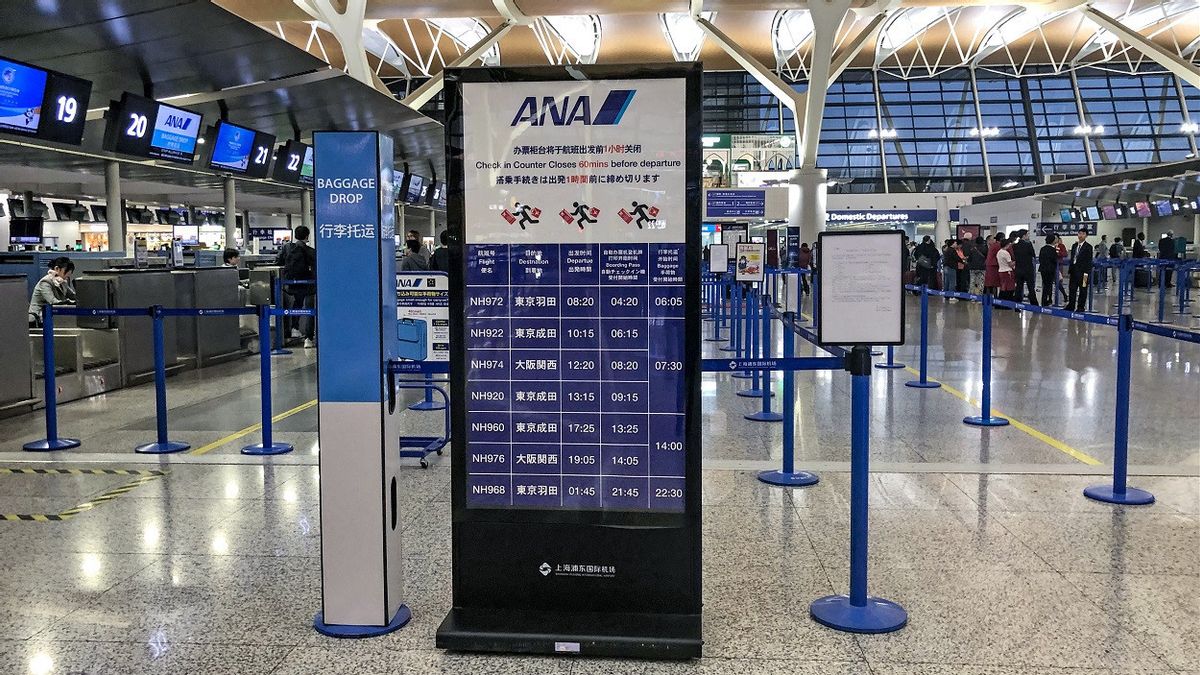JAKARTA - The development of information technology in the aviation industry, which increasingly pampers passengers, is slowly making a number of old service facilities commonly found at airports begin to be replaced.
For example, the self-check-in facility at the airport, which was originally present to avoid queuing at airline counters, can now be replaced with an application from a cellular phone (cell phone).
For example, this step was taken by All Nippon Airways Co. (ANA). In its announcement Tuesday this week, the airline will phase out self-check-in machines.
The policy is planned for domestic flights at 51 domestic airports from April next year, as most passengers can complete their pre-flight procedures via a mobile phone app.
The move, which includes the removal of 437 engines used for domestic flights, is part of efforts to offer contactless services amid the coronavirus pandemic, reducing costs associated with airport check-in.
However, for those unable to use the app, the airline will continue to offer direct check-in at the airport.
Using the operator's app, passengers can book and purchase e-tickets for domestic flights and skip check-in procedures at the airport. They can then use the e-ticket in the app, to go straight to the security inspection and board their flight.
"Smartphones will guide passengers smoothly (from booking to boarding)," said Shinichi Inoue, president of All Nippon Airways, at a press conference in Tokyo, reported Kyodo News May 24.
The app, which passengers can also use to read magazines and newspapers on the in-flight Wi-Fi network, is currently used by about 50 percent of domestic airline passengers. The operator aims to increase the user rate to around 90 percent by 2026.
The airline further said it aims to add new functionality to the app, including offering information about flight cancellations and delays, as well as departure times.
Meanwhile, ANA's domestic rival, Japan Airlines Co. said it would continue to use the automatic check-in machine. The company has been revamping machines as part of its COVID-19 measures since the spring of last year, so people don't have to touch screens.
The English, Chinese, Japanese, Arabic, and French versions are automatically generated by the AI. So there may still be inaccuracies in translating, please always see Indonesian as our main language. (system supported by DigitalSiber.id)













